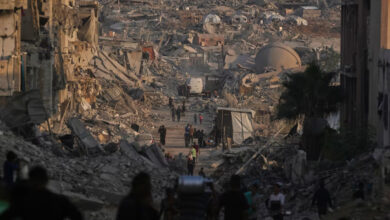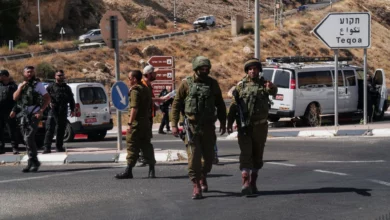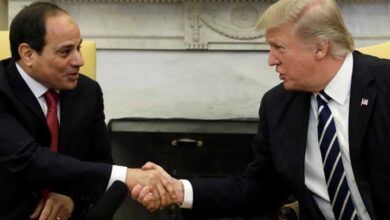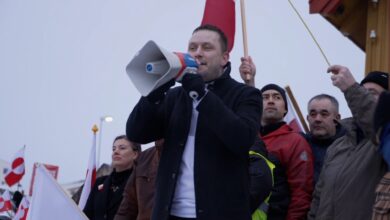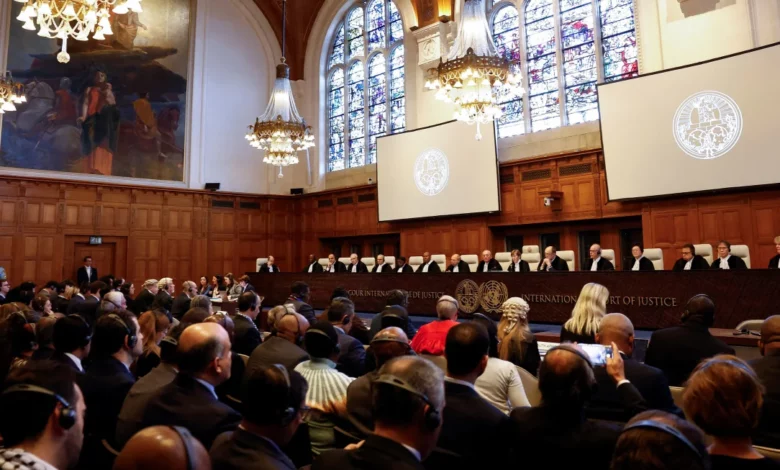
Editor’s Note: A version of this story appears in CNN’s Meanwhile in the Middle East newsletter, a three-times-a-week look inside the region’s biggest stories. Sign up here.
A historic ruling by the United Nations’ top court in a genocide case against Israel on Friday was welcomed by the three main parties it involved: Israel, South Africa and the Palestinians. But at the same time, no one got what they asked for.
The International Court of Justice in The Hague, the Netherlands, ordered Israel to “take all measures” to prevent genocide in Gaza after South Africa accused Israel of violating international laws on genocide in its war in the territory.
It rejected Israel’s request for the case to be thrown out, but it also stopped short of ordering Israel to halt the war as South Africa has asked.
“I would have wanted a ceasefire,” said South African foreign minister Naledi Pandor after the ruling in The Hague. She said that she was still satisfied with the outcome.
Israel went to war with Hamas in Gaza after the Palestinian militant group launched a brutal attack on the country on October 7, killing 1,200 people and taking more than 250 people hostage.
The war has resulted in the death of more than 26,000 people in Gaza, according to the Hamas-run health ministry, and left much of the enclave in ruins. Israel has pledged not to stop its campaign until all the remaining hostages are released and Hamas is destroyed.
The case at the ICJ marks the first time Israel has been brought before the court on accusations of violating the 1948 UN Genocide Convention, which was drafted in part due to the mass killings of Jewish people in the Holocaust during the Second World War.
Still, many Israelis hailed the ruling on Friday as a win for the Jewish state. Eylon Levi, an Israeli government spokesperson, said the court “dismissed (South Africa’s) ridiculous demand to tell Israel to stop defending its people and fighting for the hostages.” Avi Mayer, the former editor in chief of the Jerusalem Post called it “a devastating blow to those accusing the Jewish state of ‘genocide’.”
“The most dramatic thing is that no ceasefire was ordered,” Shelly Aviv Yeini, head of the international law department at the Hostages and Missing Persons Families Forum, told CNN, adding that a potential ceasefire order was Israel’s biggest fear, especially as it would have come as over a hundred hostages remain in Gaza.
The discourse in Israel has so far focused on only ending the war once the hostages are freed, she said, adding that Israel would have “struggled to live” with a ceasefire order that doesn’t guarantee the return of the captives.
“So, I think this is quite (an) expected outcome, and something that Israel will be able to comply with,” she said, adding that the court’s order for Israel to deliver humanitarian aid and report back to the ICJ on its actions is “doable.”
A ‘dark day’ in Israel’s history
Despite the outcome being perceived by some as being in Israel’s favor, experts warned of the reputational damage faced by the Jewish state.
“I would not call it a win, but I would say it could have been worse,” Robbie Sabel, professor of international law at the Hebrew University of Jerusalem, told CNN. “The fact that in public eyes there’ll be an association that Israel’s acts could have led to genocide, clearly this is harmful public relations.”
Friday’s measure was an interim measure by the ICJ as the court considers a full ruling on whether Israel is guilty of violating the Genocide Convention. That ruling could take years.
Sabel said that while he is “absolutely convinced” that the ICJ will eventually find Israel not guilty of genocide, he worries that by that time “the public may have forgotten that.”
“If they had asked us to stop defending ourselves, we would have had a problem, and at least we don’t have that problem,” he said.
Yeini said it was nonetheless a “a very dark day” in Israel’s history.
For some Palestinians, however, the court’s ruling didn’t go far enough.
Mohammed el-Kurd, a Palestinian activist from Jerusalem, said the ICJ failed on South Africa’s “most important request” to suspend the military operations. “Not shocking, but stings nonetheless,” he said on X, formerly Twitter.
“Until the Israeli regime’s genocidal assault on Gaza stops, we should keep protesting and disrupting in every way possible. This is today’s lesson,” he said.
CNN’s Christian Edwards contributed to this report.

